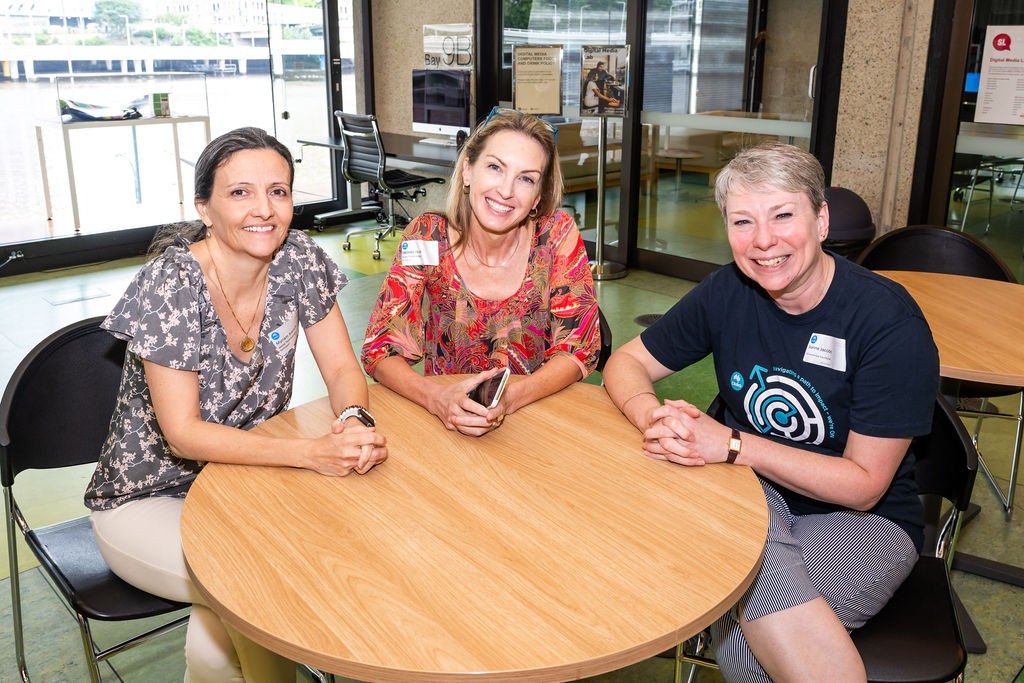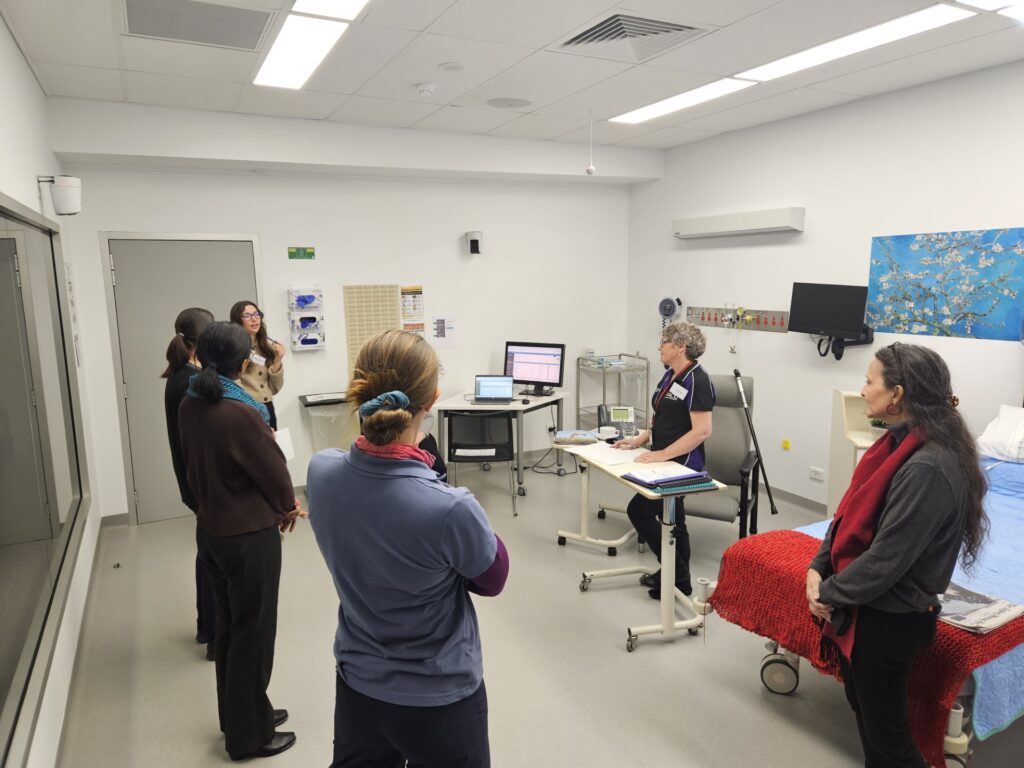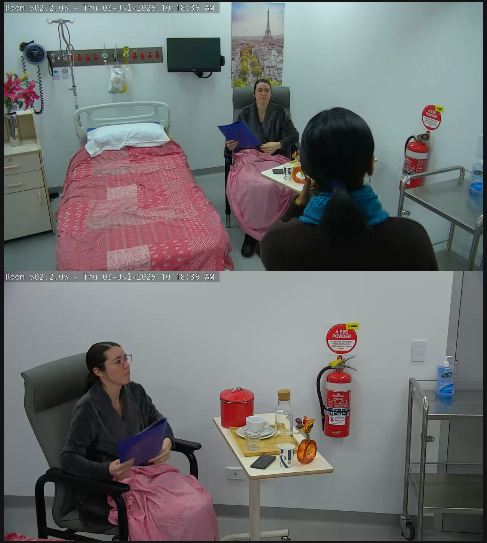In a sector already stretched thin, aged care workers across Australia are burdened by a hidden weight: hours lost each shift to compliance reporting and administrative data capture, rather than being able to use that time to tend to residents.
To reduce this administration burden on aged care workers, ACU’s Professor Myriam Amielh and Melinda Hunt are leading problem-first innovation to develop Jessie Technology – an AI-powered hands-free data input technology that improves the data collection process.
“Every shift, registered nurses, or other aged care workers, type information in a large amount on phones, on computers, and it can take a couple of hours every shift, which is a lot,” Professor Amielh tells Women’s Agenda. “That’s time that they don’t get to spend on these residents, looking after people.”
Professor Amielh is ACU’s Dean, Enterprise and leads industry partnerships and innovation strategies. She has more than two decades of experience in commercial R&D and senior roles in multinational companies.
Professor Amielh established ACU’s Enterprise Office (knowledge transfer office) in 2021, creating dedicated internal support for commercialisation and impact-driven research at the university. As Enterprise Business Partner, Melinda has 20+ years experience delivering operational and strategic projects and drives the commercialisation of research with strong commercial and social impact potential.
A collaboration with Microsoft Australia and BaptistCare, Jessie Technology is ACU’s first commercialisation project and has played a key role in reshaping internal support for impact-driven research.
“Jessie Technology is a beautifully unique project in that it falls under a commercialisation banner, but it’s not translating existing research,” says Hunt, highlighting the fact that the project didn’t start with a solution, but rather began by listening to problems that existed in the aged care sector. “This is about innovation with empathy, not invention for the sake of it.”
Project team members Professor Jennifer Sim, Head of School of Nursing, Midwifery and Paramedicine (NSW) and Dr Nicola Brown, Senior Lecturer (Nursing), School of Nursing, Midwifery & Paramedicine (NSW) lead a program of research at ACU focused on improving documentation practices in aged care settings. Together they bring a deep understanding of the challenges associated with documentation practices in aged care facilities, and lead the robust research and ethics methodology underpinning the testing and evaluation of Jessie Technology.

Commercialisation and real-world impacts
To build up the project’s commercialisation for real-world application, Professor Amielh and Hunt participated in CSIRO’s ON Innovation Program – completing Prime and Accelerate in 2023 and 2024 respectively.
The support they received through these programs gave them practical tools and a common language to engage confidently with commercial partners.
“CSIRO ON gives you many tools and practical approaches and methodologies to take an idea to market essentially,” says Professor Amielh, adding that herself and Hunt “wanted to progress the project”, but they also “wanted to leverage” the knowledge gained from CSIRO’s ON Program to “disseminate it into ACU”.

The success of Jessie Technology has helped inform the ACU Enterprise Office’s broader focus, expanding industry collaborations, external partnerships and commercial activities.
Following CSIRO’s ON programs, Hunt says she has gained greater confidence in talking to stakeholders about Jessie Technology’s big potential for impact.
“Prime and Accelerate were definitely helpful to build the foundations for ACU and to keep moving the project forward,” says Hunt.
“The traction that we’ve gained over the last few years, primarily from CSIRO, has helped us gain internal traction to move forward with ACU’s potential for the commercialisation of the project,” she says.

Project potential
As Jessie Technology continues to develop, the care economy is predicted to grow substantially as Australia contends with an ageing population.
The number of Australians aged 85 and over is set to more than triple in the next 40 years as the country’s population grows to 40.5 million, according to the government’s latest Intergenerational Report from 2023.
With the capabilities to address this problem with impact, Jessie Technology’s potential has been recognised by the Australian government, who recently awarded the team $487,000 in Australia’s Economic Accelerator grant funding. The team has also received generous support from the Opalgate Foundation, a philanthropic organisation that provides financial support to charitable initiatives in health, as well as education and cultural preservation.
“We are now using that money to move the project to a more mature level of development and testing and tryouts,” says Professor Amielh, noting that the team is still seeking other forms of funding as well, to continue expanding the project.
“We’re always happy to talk to new organisations who come to us and want to learn more about the solution,” Hunt adds. “All the pieces play an important role and interact with each other to leverage up and to keep it moving forward.”

